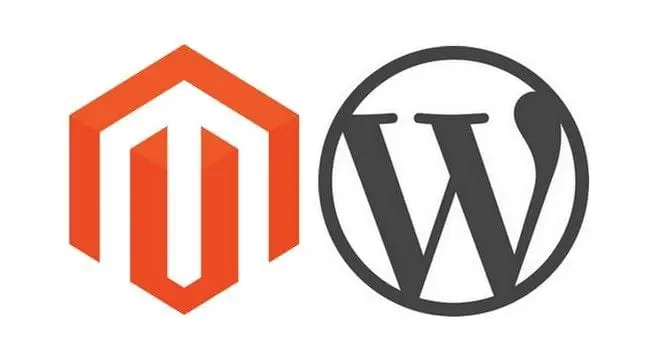Magento and WordPress are both industry-leading platforms, used by some of the world’s biggest companies. They have both been established for many years and offer businesses of all sizes great features and high levels of functionality. But which is the best ecommerce platform? Let’s take a closer look.
About Magento
Magento is an open source ecommerce platform that is currently used by over two hundred thousand ecommerce businesses worldwide. It boasts fantastic out of the box features, making it ideal for managing and selling products, as well as providing a powerful Content Management System (CMS) with similar blogging capabilities to platforms like WordPress and Joomla.
One of the reasons Magento is so popular is that it is both flexible and scalable. It can be used by businesses of all sizes and will continue meeting merchants’ needs whether they are selling five hundred or five thousand products. Whilst some would argue it has a steep learning curve, once you have grasped the basics, you will be able to get everything you need out of this ecommerce platform and more.
About WordPress
Unlike Magento, WordPress was not originally designed to be an ecommerce platform. Instead it started out as a simple blogging platform that over the years has grown to become a powerful CMS. Although there are a number of content management systems on the market, WordPress is easily one of the best, boasting great features and an easy-to-use interface.
Like Magento, WordPress can be integrated with a wide range of plugins in order to give it extra functionality. Whilst it does not have ecommerce features as it is, you can integrate it with a various different plugins including Woocommerce, WP-Ecommerce and Shopp to benefit from a fully functional shopping cart.
Similarities between the two platforms:
Before we pit Magento against WordPress to compare and evaluate their features, let’s first take a look at some of the similarities between the two platforms.
1. Open source
Both Magento and WordPress are open source platforms, which means they are free to download, install, modify and extend by anyone, anywhere. The two platforms are also supported and maintained by dedicated communities made up of web developers and users. These communities continuously work on updating the platforms and spend time helping other users with issues.
2. Highly customisable
Another similarity between Magento and WordPress is the fact that both platforms give users a lot of control over their websites. Not only can they control their websites’ content but also how it looks and functions. Whereas some eCommerce platforms only allow users to change certain aspects of their stores’ aesthetics, with Magento and WordPress you can change and manipulate your store to make it look however you want it to.
There is also a wide range of plugins for both Magento and WordPress (developed by the two communities) that allow you to extend your ecommerce store and tailor it to meet your customers’ needs and requirements.
3. SEO-friendly
The final similarity we would like to point out is that both WordPress and Magento are SEO-friendly platforms. This means that users have a good chance of getting their ecommerce stores ranking well on search engine results pages as both platforms are built with clean code and allow users to optimise their websites.
Video source: https://www.youtube.com/watch?v=NS0sYjYzovE
How do they compare?
Now lets compare and evaluate their features:
1. Magento vs WordPress: Usability
If you are about to set up your first ecommerce store, it is likely that usability will be one of your main concerns. Out of the two platforms, WordPress is probably the easiest to use and should allow you to get your store up and running fairly quickly.
Magento is also user-friendly, however some people describe it as having a steep learning curve, and this is because the Community Edition is actually aimed at high skilled web developers and those with advanced technical knowledge. If this doesn’t sound like you, don’t let it put you off as you can always work with an experienced Magento agency!
2. Magento vs WordPress: Options for customising your website
Both Magento and WordPress are highly customisable, though you are likely to need the help of a web developer during the process. The platforms both have pre-made themes and plugins that you can use to customise the look and functionality of your ecommerce site but you can always contact a web developer if you are looking for something more professional and bespoke.
3. Magento vs WordPress: Managing inventory
If you have got thousands of stock keeping units (SKUs) then Magento is the best choice of ecommerce platform. This is due to the fact that it allows you to add as many products and categories as you want to and can also be integrated with a POS system, if you have a brick and mortar store too. Being able to add and manage as many products as you need to also mean Magento is a future-proofed solution, making it ideal for ecommerce businesses with plans to grow.
If on the other hand you only have a small number of SKUs (under 100) then WordPress will be a better fit for your eCommerce business. In terms of ecommerce functionality, it is not as advanced as Magento, but if you are only listing a small number of products, you will have no trouble managing them in WordPress.
4. Magento vs WordPress: Blogging
WordPress is a purpose-built content management system so in terms of blogging and content creation, it has a clear advantage over Magento. That is not to say that you can’t create content and blog posts in Magento. The platform has its own powerful CMS but WordPress just pips it to the post in terms of usability.
If your primary focus is to provide users with content but you just want to sell a few products alongside it, WordPress will make a better choice of platform. However if your primary aim is to sell products to customers and you have a large product range, Magento is easily the better ecommerce platform.
Conclusion
It is clear from the comparison that both Magento and WordPress deserve their titles as being industry-leading platforms, however they do have key differences that make them better suited to certain applications. For example, if your primary focus is to provide users with content but you just want to sell a few products alongside it, WordPress will make a better choice of platform. However if your primary aim is to sell products to customers, Magento is easily the better eCommerce platform.
It’s all about identifying your goals and choosing the platform that best helps you reach them. Always think about the future, as adding a massive product range later on could change your decision now.
Image credits: bizbuzzmedia, ebayink and Phil Oakley

A selection of our older posts, written by various members of the team between 2015 to 2021.












0 Comments